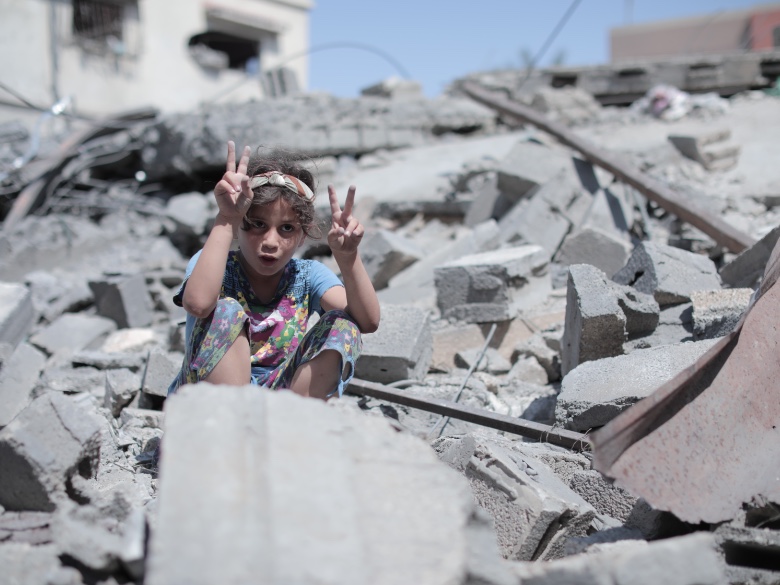
As God incarnate, Jesus was certainly far more than a humanitarian. But he was indeed a humanitarian.
Matthew 9:35-36 NRSV
Then Jesus went about all the cities and villages, teaching in their synagogues, and proclaiming the good news of the kingdom, and curing every disease and every sickness. When he saw the crowds, he had compassion for them, because they were harassed and helpless, like sheep without a shepherd.
The gospels are filled with stories of Jesus noticing people experiencing suffering, feeling their suffering with them, and acting to alleviate their suffering. He wept and prayed over spiritually directionless people and spent himself, day after day, in the hard work of showing love and kindness to everyone around him.
And in his seeing, noticing, and acting, Jesus was recognizing and affirming the value of every person.
Not Everyone Sees
I recently had to watch the 2004 film Hotel Rwanda for a research paper, in which Don Cheadle plays the manager of a four-star hotel in Kigali. He finds himself in the position of being able to offer shelter and protection to over 1,200 Tutsis during a genocide that claimed the lives of almost one million people at the hands of the Hutus.
The film begins with a quote from Leon Mugesera, a member of the Hutu ruling party at the time, who referred to the Tutsis as “cockroaches” that should be “exterminated.” His speech is still examined today as a chief example of how propaganda works. Mugesera’s words gave a mental image to the rage and hatred of a large number of people, whose consciences were conditioned to justify the taking of human life through brutal means.
Dehumanizing language, the objectification of people, and the denial that each person is made in God’s image are ultimately what pave the way for ethnic cleansing, genocide, and other manmade forms of humanitarian crises.
It could be argued that humanity has made some measure of progress in this regard. The existence of various international laws constituting certain acts as war crimes attests to this. But as we’ve learned in the last week, we have a long way to go.
Thinking is Good, But We Need to Feel
As our culture descends into passionate rival viewpoints, nations, members of the media, and individuals all around the world are taking sides. Whether in public protests or private conversations, it feels as if everyone has an opinion about which side is more to blame in any conflict.
I’m no foreign policy expert, so I’ll avoid joining that fight. What I can do is ask myself what, if anything, the teachings of Jesus have to say about violence, war, and empire.
When Jesus walked the earth, he, too, took sides. But he didn’t choose the side of Rome. Or the Jewish Temple. Or any other earthly empire. Jesus chose to stand with those who were enduring suffering, marginalization, and oppression.
Jesus came announcing the good news of a completely new kind of kingdom – the kingdom of God – and he explained in bold terms what life should look like for those who accepted his invitation to become part of it.
Through sermons and parables, Jesus explained that this kingdom would exist within the people of God and that it would pop up, rather subversively, all over the world as Jesus’ followers spread his message and emulated his ministry.
Jesus definitely taught the concept of nonviolent resistance against oppressive empirical systems. But in moments such as the one in which we’re living, when we’re bombarded with video clips, images, and opinions about all that is happening in Israel and Palestine right now, it’s a good time to begin by doing what Jesus did when he encountered people who were enduring suffering.
What We CAN Do
We can see people. We can notice them. We can allow their hurt, pain, and fear to impact our own hearts. We can draw from the deep well of empathy and speak with a healing balm of compassion.
We can see the video of a little Palestinian girl whose face is being washed with a bottle of water because she was closer to a bomb blast than any child should ever have to be. We can feel for her.
We can hear the testimony of a Jewish father who was thankful his daughter was killed quickly rather than being taken as a hostage to endure who knows what kid of suffering and trauma and we can feel for him.
We can stop long enough to declare that each of these people are… real people. Humans. Made in God’s image. Objects of God’s love. They reflect something of God’s goodness to the world around them by there mere existence.
Why does it matter? What good will this exercise of seeing and feeling do for any of us?
Here’s a vision for us. When we all begin to see and feel and notice and appreciate the image of God in the pictures we see of those who suffer, the world immediately around us will become a softer, slightly warmer, safer place.
I’m convinced that “REhumanizing” those who have been dehumanized is powerful. It’s enlightening. And it creates a ripple effect.
I can’t stop wars from occurring. I’m not in a position to write, with any influence, about foreign policy or global politics. But I have the power to make the world a slightly more compassionate place for others.
And that’s no small power.
Photo by Mohammed Ibrahim on Unsplash.











